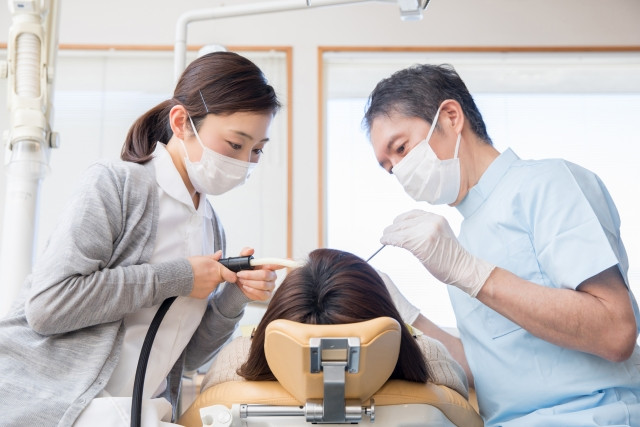Dental health consciousness has been a main concern of people nowadays. Having a healthy set of teeth creates a good impression. Dental services in Japan ensure that having such an inclination as well as having sufficient knowledge about its costs is beneficial in maintaining good dental health.
Table of Contents
Dental Health in Japan
Generally, the dental practice in Japan is categorized into two: public and private. Technically, each still provides common dental practice, including assessment, surgeries, maintaining hygiene, and other activities such as orthodontics and medication. Their point of difference lies solely in their service deliveries. Public practice is characterized by local or national government funding, while the private practice is under personalized coordination with the patient. Another aspect would be the access to the services. Public practice is often guaranteed for the older population, which the national government prioritized in its national healthcare programs. Fees in the private practice are subsidized as well, but its access is reserved mainly for the other groups such as children.

Another interesting feature of Japanese dental healthcare is its technological advances. Regulatory boards ensure that the practice complies with the latest technological devices. For diagnostics and surgical operations, dentists in either public or private practice see to it that their compliance with the national standards is maintained.
Writer's Pick
Going to dentist in Japan
Looking for a dental service in Japan may depend upon the concern of the patients. There is a difference between obtaining services from a clinic and hospitals. This may well reflect the difference between public and private practice because most dentists who work in a hospital are covered by public practice, and those who work in a clinic are otherwise private.
Primarily, accessing dental health services begin with clinic consultations. Patients can set up appointments with their preferred clinics. For those who are non-Japanese speakers, there are English speaking dentists available that can help in communicating effectively. If one does not have access to such a dentist, patients are responsible for bringing their own translators to the clinic if deemed necessary. Upon consultation, the dentist will determine what procedures are necessary for the condition. For severe cases, dentists will recommend patients to go to hospitals to deal accordingly.

Dental Cost in Japan
Familiarizing oneself with the basic costs of dental services in the country is key to grasping its general benefits. Prices may depend upon the treatment needed. Most people consider dental service in Japan as affordable due to the national health insurance but there are some services that are not covered entirely by health insurance. Commonly, these services include cleaning, dentures (except for elderly people), and orthodontics. However, services such as extraction, fillings, transplants, tooth crowns, and periodontal disease treatment are covered.
Primarily, the base cost of initial inspection ranges starting from ¥3,000 to ¥ 5,000, depending upon the clinic. Inspection rates may also go up depending on the concern of the patients or if there is an urgency of the condition. Initial consultations and succeeding operations that are mentioned above are covered by insurance. For other general dental treatment procedures such as teeth cleaning, extraction, or a root canal, it is covered by national health insurance.
If you do not have Japanese national health insurance, tooth extraction costs vary from ¥1,500 to ¥20,000, which is, of course, determined by the severity of the tooth. Fillings may cost ¥1,500 to ¥10,000, and the usual material used here is metal because resin ceramics, which is an alternative, is considered as a cosmetic in Japan and it is definitely not covered by the national health insurance. Basic denture rates may cost approximately ¥10,000 to ¥20,000. The cost of tooth crowns for materials covered by the national healthcare insurance may range from ¥3,000 to ¥7,500. Lastly, periodontal treatment may cost from ¥600 to ¥5,000. Please keep in mind, that the above average costs do not include the taxes, and will be less if you are covered with insurance.
For services that are not covered by insurance, base costs may depend as well on the clinic and the preferences of the patient himself or herself. For ceramic restorations, the average rates may range from ¥45,000 to ¥110,000, depending on the number of tooth placement or treatment. Fashionable dentures that will use metal products such as gold, silver, cobalt, or titanium may cost ¥200,000 to ¥350,000 depending if it's a full mouth coverage. Meanwhile, extensive teeth cleaning services cost approximately ¥10,000 for one hour. Keep in mind that these rates are only base costs and are subject to change; these prices are based on an English speaking dental clinic located in Osaka.
※ Kono Dental Clinic, "Treatment Fees"
All about insurance
Discussing any health-related matters in Japan always brings with it a discussion about National Health Insurance. This insurance scheme covers up to 70% of the total cost of any health services including dental. Patients are left with only 30% of the total cost, making it very affordable.
※ US National Library of Medicine-National Institute of Health, "The Oral Healthcare System in Japan"
The National Health Insurance of Japan is provided to all individuals within the country, regardless of age, citizenship, and status. This means that foreigners who are working in the country have access to it provided that the minimum 3-month residence requirement for the application was met. (Eligibility requirements vary from person to person.) Employed expatriates often have access to it through their employer. Typically, the arrangement is provided upon the agreement of the contract, guaranteeing dental health care for the employee. On the other hand, non-employed expatriates should apply for it through the local health departments. Requirements such as valid passport, visa, and ID are asked for during the application.

Managing dental health costs may be attributed as well on how the patient looks for a clinic. It is suggested to assess first the basic provision of the clinic and whether or not they specialize in services that you may need. There are private practices that focus solely on non-restorative treatments but focus on prosthetics. This is important to notice because the most crucial part of determining the general cost would be its inclusion in the national insurance program and whether your needs are covered by insurance.
Summary
Oral healthcare in Japan is indeed a fascinating sector. Attributing mostly to a centralized universal healthcare system, the overall healthcare services have many upsides that will benefit not just the Japanese people, but the foreigners living in the country as well. The only responsibility of the patient is, therefore, a close examination on deciding where to access it.




















.jpg)













